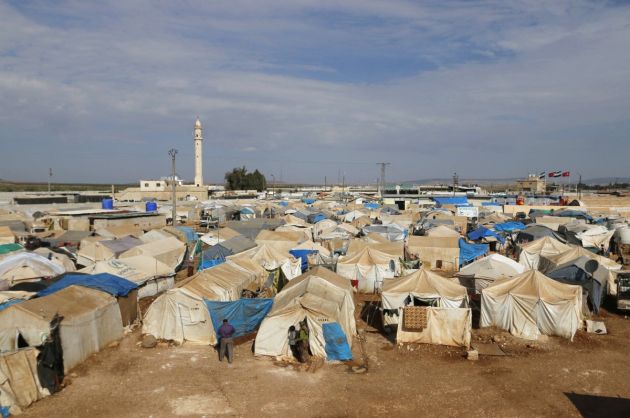Uruguayan churches offer some resettlement help to Syrian refugees

Uruguayan churches in the World Council of Churches say they are working with the government in the South American country and other churches to relocate and settle refugees from the conflict raging in Syria.
The actions are in response to an appeal from the Uruguayan government, which called on the churches and civil society institutions to help with the initiative, the WCC said in an October 21 statement.
On June 2014, the government of Uruguay addressed the United Nations High Commissariat for Refugees in Geneva, Switzerland, offering asylum for 100 Syrian children and their families.
By the end of August 2014, the UN estimated 6.5 million people had been displaced in Syria.
More than 3 million refugees have fled to countries such as Lebanon (1.14 million), Jordan (608,000) and Turkey (815,000). Another 35,000 refugees were awaiting registration, while estimates of several hundred thousand more were not included in official figures as they were unregistered.
"The Syria crisis has become the biggest humanitarian emergency of our era, yet the world is failing to meet the needs of refugees and the countries hosting them," the UN High Commissioner for Refugees Antonio Guterres said on August 29.
The first group of five families (42 people) have arrived in Uruguay and was welcomed by President José Mujica.
The families will stay at the Casa San José, a residence facility of the Roman Catholic Marist brothers, where they will also receive Spanish classes.
The president of the Federation of Evangelical Churches in Uruguay (FIEU), Rev. Hugo Armand Pilón, invited the Waldensian Church of the River Plate to join helping the aid efforts.
On October 15, representatives of the board of the church and of FIEU paid a visit to the families and delivered school kits. More families are expected to arrive in February 2015, making a total of 120 people.
In the second stage of the initiative, the families will receive homes from the government and the Waldensian Church will offer household furnishings.
"For those who are part of God's people there are no human boundaries that divide and exclude. We dream of the Promised Land where peace may reign.
"We are still far from that dream but we do not lose hope and keep searching for a horizon of fulfilment for everyone," said Carola Tron, vice moderator of the Waldensian board.
For Rev. Juan Aberlardo Schvindt, from the Evangelical Church of the River Plate, a member of FIEU, this initiative is motivated by a profound feeling of solidarity with those who suffer rights violations in the midst of the conflict in Syria.
He sees the effort as a model for others to emulate. "This measure also seeks to inspire other governments on the continent to join efforts and create spaces where the lives of those who are suffering can be rebuilt," he said.
On 15 October, Tron and Pilón visited the families in Montevideo. "We are privileged to be part of this. We are thankful too. We thank the God for the life who renews His promise at each generation and invites us to be part of the pilgrimage," said Tron.
In February, the rest of the group will arrive and the support of the churches will continue. The goal is to build closer ties with the Syrian refugees.